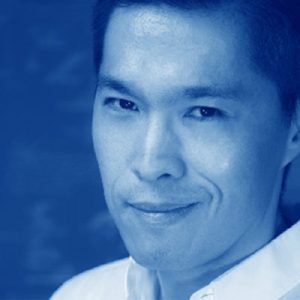
Incredulous, Caine asked Po, "Old man – how is it that you hear these things?" Po's reply was, "Young man, how is it that you do not?" From that point on, Po affectionately called Caine "Grasshopper". Po then asked if Caine could hear his own heartbeat or the grasshopper at his feet (Caine hadn't noticed the insect until that moment). Caine explained that he could hear the water flowing in a nearby fountain and birds in a nearby cage. Po asked Caine to close his eyes and describe what he could hear. Caine was given the nickname "Grasshopper" by Master Po the reference was from an exchange where the still ignorant young Caine asked the old blind master how he could function without seeing. Po considered Caine his favorite pupil and behaved more like an elderly grandfather. One of his first instructors was the blind master named Po ( Keye Luke). Later, while in the US, when asked by a student which forms he teaches, Caine's response was, "All of them" (a tribute to Master Kan, who had answered young Caine similarly when asked the same question). At one point during his training he was shown the various forms and Master Kan explained that it may take half a lifetime to master one of the forms. Although taking a student of mixed parentage into the order was unprecedented, the head monk Master Kan ( Philip Ahn) sagely noted, "There is a first for everything," and welcomed Caine.įollowing his induction into the order, Caine then lived in the temple until adulthood, mastering many of the fighting forms and lessons taught by the Shaolin monks (Crane, Snake, Praying Mantis, Tiger, and Dragon). After waiting patiently for several days, Caine and the few other remaining candidates were taken inside the temple where only Caine passed a subtle test in manners. Orphaned after his maternal grandfather's death, Caine eventually found himself outside the local Shaolin temple along with other hopeful candidates. There is tremendous similarity between Caine and them.” Synopsis They want to get away from the clutter, pressure and brutality of contemporary society. “People today are attempting to live in communes. “The story also deals with inner serenity which comes from a person being in touch and in communion with his own senses and his own self and, hopefully, in touch with his entire universe or, putting it simply, one with the universe, one with nature. On the contrary, it is depicted as sad and unglamorous.

When he does occasionally get involved, it is not glamorized.
#Quaik chang kang series#
“The point of view of the series is enormously appealing to all people. We emphasize love and peace, yet we are experiencing violent times. It is about a man of peace and love placed in a violent time and place – the 1870s of the American West. Regarding the issue of the actor's casting, see Kung Fu: Casting controversyĪ May 1973 interview by Black Belt Magazine to John Furia Jr., the series story editor, expresses his view of the character: “Essentially, the story is one of contrast. Regarding the origins of the character and the series concept, see Kung Fu: Bruce Lee's involvement

However, Caine grew his hair long and occasionally had intimate relations with women in the series. In real-world Shaolin, both monks and priests shave their heads and some remain celibate. Once they become masters and leave the temple, they are referred to as Priests.

In the Shaolin arts, monks live in temples and most stay their entire life. He would then leave his new surroundings in a further search for anonymity and security. Although it was his intention to find his brother Danny in a way which would escape notice, the demands of his training as a priest in addition to the sense of social responsibility, which was instilled within him during his childhood, forced Caine to repeatedly come into the open to fight for justice. Kung Fu follows his adventures as he travels to the American Old West (armed only with his skill in martial arts) as he seeks his half-brother, Danny Caine. He was raised in a Shaolin Monastery in Hunan Province, and was trained by the monks to be a Shaolin master. In the late 19th century China, Kwai Chang Caine was the orphaned son of an American man and a Chinese woman. He has been portrayed by David Carradine as an adult, Keith Carradine as a younger Caine, Radames Pera as the child Caine, and Stephen Manley as the youngest Caine.

Kwai Chang Caine ( Chinese: 虔官昌 pinyin: Qián Guānchāng) is a fictional character and the protagonist of the ABC 1972–1975 action-adventure western television series Kung Fu.


 0 kommentar(er)
0 kommentar(er)
